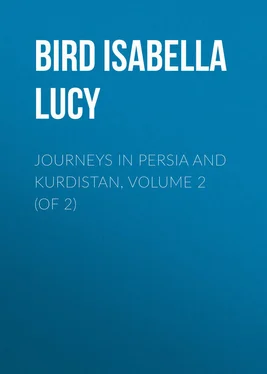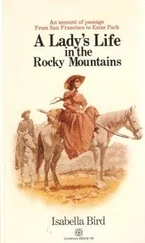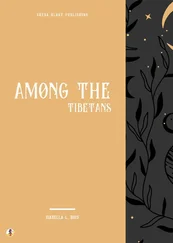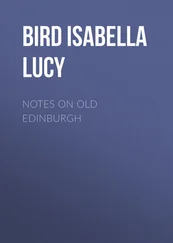Isabella Bird - Journeys in Persia and Kurdistan, Volume 2 (of 2)
Здесь есть возможность читать онлайн «Isabella Bird - Journeys in Persia and Kurdistan, Volume 2 (of 2)» — ознакомительный отрывок электронной книги совершенно бесплатно, а после прочтения отрывка купить полную версию. В некоторых случаях можно слушать аудио, скачать через торрент в формате fb2 и присутствует краткое содержание. ISBN: , Жанр: foreign_language, foreign_antique, foreign_prose, Путешествия и география, на английском языке. Описание произведения, (предисловие) а так же отзывы посетителей доступны на портале библиотеки ЛибКат.
- Название:Journeys in Persia and Kurdistan, Volume 2 (of 2)
- Автор:
- Жанр:
- Год:неизвестен
- ISBN:http://www.gutenberg.org/ebooks/38828
- Рейтинг книги:5 / 5. Голосов: 1
-
Избранное:Добавить в избранное
- Отзывы:
-
Ваша оценка:
- 100
- 1
- 2
- 3
- 4
- 5
Journeys in Persia and Kurdistan, Volume 2 (of 2): краткое содержание, описание и аннотация
Предлагаем к чтению аннотацию, описание, краткое содержание или предисловие (зависит от того, что написал сам автор книги «Journeys in Persia and Kurdistan, Volume 2 (of 2)»). Если вы не нашли необходимую информацию о книге — напишите в комментариях, мы постараемся отыскать её.
Journeys in Persia and Kurdistan, Volume 2 (of 2) — читать онлайн ознакомительный отрывок
Ниже представлен текст книги, разбитый по страницам. Система сохранения места последней прочитанной страницы, позволяет с удобством читать онлайн бесплатно книгу «Journeys in Persia and Kurdistan, Volume 2 (of 2)», без необходимости каждый раз заново искать на чём Вы остановились. Поставьте закладку, и сможете в любой момент перейти на страницу, на которой закончили чтение.
Интервал:
Закладка:
We crossed the pure green waters by a broad ford, and camped on the right bank on a gravel plateau above it, on which is Killa Bazuft, a large quadrangular stone fort with round towers at the corners, an arcaded front, a vaulted entrance, and rooms all round the quadrangle. It is now ruinous. Some irrigated land near it produces rice and mosquitos. The Sahib's camp is pitched here. He has been badly robbed, both of clothing and cooking-pots, and was left without the means of cooking any food.
Dima, June 26. – We retraced our steps as far as the source of the Duab, crossed into the Shamisiri valley, and by a low pass into the Karun valley, forded the Karun by a strong deep ford, crossed a low range into the Zarin valley, where are some of the sources of the Zainderud, from thence marched to the Tang-i-Ghezi, through which the Zainderud, there a vigorous river, passes into the Chahar Mahals, went up the Kherson valley, crossed Gargunak, and by a very steep and rugged descent reached this camp, a place of springs, forming the upper waters of the Zainderud. These days have been severe, the heat great, and the incidents few.
The ascent of the Gardan-i-Cherri was difficult. The guide misled us, and took us through a narrow rift in the crest of a ridge on broken ledges of rock. We camped at a height of 9000 feet in the vicinity of snow. The new arrangement, which is necessary for safety, does not increase comfort, for the Arab horses, noisy, quarrelsome fellows, are in camp, and the mules shake their bells and sneeze and bray at intervals all night.
The descent of 2000 feet into the Shamisiri valley, over bare gravel chiefly, was a very hot one. It is a wide, open valley with stony hills of no great height enclosing it, with much green sward along the river banks, above which, running to a great height on the hillsides, are stretches of irrigated wheat. So far as I have yet seen, the wheat is all "bearded." It is a most smiling valley; so cultivated, indeed, and so trim and free from weeds are the crops, that one naturally looks for neat farm-houses and barns. But one looks in vain, for except the ruins of some Armenian villages there are no traces of inhabitants, till night comes, when the glimmer of camp fires here and there high up on the hillsides shows the whereabouts of some migratory families.
I start so early as to get in to the camping-ground about nine now, and the caravan, two hours later, comes in with mules braying, bells ringing, horses squealing for a fight, servants shouting. Then the mules roll, the tent-pegs are hammered down, and in the blazing, furnace-like afternoons the men, who have been up since 2 a. m., take a prolonged siesta, and a solemn hush falls on the camp. After the Gorab affair I loaded my revolver, and now sleep with it under my pillow, carry it in my holster, and never have it out of my reach. I think I should only fire it in the air if I were attacked, but the fact of being known to be armed with such a weapon is more likely than anything else to prevent attack. No halt is now made on the march.
The sick people who appeared at Shamisiri, from no one knows where, were difficult and suspicious, and so they have been since. The dialect of Persian has somewhat changed, and Aziz Khan now interprets the strange accounts of maladies to Mirza, and he interprets to me. When they crowd almost into the tent, Aziz, when appealed to, pelts them with stones and beats them with a stick, and they take it very merrily. He thinks that I have appliances in the "leather box" for the cure of all ills, and when he brings blind people, and I say that I cannot do anything for them, he loses his temper. No matter where we camp, dark, handsome men spring up as if by magic, and hang about the fires for the rest of the day. From among these the guides are usually selected.
Numbers of "patients" appear everywhere, and the well assemble with the sick round my tent. At Berigun the people were very ignorant and obstinate. After spending a whole hour on two men, and making medicines up for them, they said they would have the "Feringhi's ointment," but "nothing that goes down the throat." Another said (and he had several disciples) that he would not take the medicine "for fear it should make him a Christian." One man, who has fever, took away four quinine powders yesterday for four days, and came back to-day deaf and giddy, saying that I have killed him. He had taken them all at once!
It is very pleasant to see how very fond the men are of their children, and how tender and loving they are to their little girls. The small children are almost always pretty, but by three years old the grace and innocence of childhood are completely lost, and as in Persia there are no child faces; indeed, the charm of childhood scarcely survives the weaning-day. If they are sick the fathers carry them for miles on their backs for medicine, and handle them very gently, and take infinite pains to understand about the medicine and diet. Even if both father and mother come with a child, the man always carries it, holds it, is the spokesman, and takes the directions. Several men have offered me mares and cows if I will cure their children. All the "patients" ask finally, "What must I eat, and not eat?"
The Bakhtiaris have often asked me whether it is unwholesome to live so much as they do on cheese and sour milk. They attribute much of their dyspepsia to their diet. They live principally on mast or curdled milk, buttermilk, cheese, roghan or clarified butter, nān , a thin leavened cake, made of wheat or acorn flour, bannocks of barley meal, celery pickled in sour milk, kabobs occasionally, and broth flavoured with celery stalks and garlic frequently. They never use fresh milk. They eat all fruits, whether wild or cultivated, while they are quite unripe. Almonds are eaten green.
They hunt the ibex and shoot the francolin and the bustard, and make soup of them. They are always on the hills after game, and spare nothing that they see. I have seen them several times firing at red-legged partridges sitting on their nests. They use eggs considerably, boiling them hard. Alcohol in any form is unknown among them, and few, except the Khans, have learned the delights of tea and coffee. Buttermilk, pure water, and sharbat , when they can get lime-juice, are their innocent beverages. The few who drink tea use it chiefly to colour and flavour syrup. They eat twice in the day. Though their out-of-doors life is healthy and their diet simple, they rarely attain old age. A man of sixty is accounted very old indeed. The men are certainly not polite to their wives, and if they get in their way or mine they kick them aside, just as rough men kick dogs.
We have been marching through comparatively lowland scenery, like the Chahar Mahals, from which we are not far. At Shamisiri, except for the fine peak of Dilleh, there are no heights to arrest the eye. The hills on the north side are low, gravelly, and stony, with perpendicular outbreaks of rock near their summits. To the south they are of a different formation, with stratification much contorted. The next march was over low stony hills, with scanty herbage and much gum tragacanth, camel thorn, and the Prosopis stephaniana , down a steep descent into the Karun valley, where low green foot-hills, cultivated levels, and cultivation carried to a great altitude on the hillsides refresh the tired eyes. The Karun, liberated for a space from its imprisonment in the mountains, divides into several streams, each one a forcible river, winds sinuously among the grass, gleams like a mirror, and by its joyous, rapid career gives animation to what even without it would be at this season a very smiling landscape. Crossing the first ford in advance of the guide, we got into very deep water, and Screw was carried off his feet, but scrambled bravely to a shingle bank, where we waited for a native, who took us by long and devious courses to the left bank. The current is strong and deep, and the crossing of the caravan was a very pretty sight.
Читать дальшеИнтервал:
Закладка:
Похожие книги на «Journeys in Persia and Kurdistan, Volume 2 (of 2)»
Представляем Вашему вниманию похожие книги на «Journeys in Persia and Kurdistan, Volume 2 (of 2)» списком для выбора. Мы отобрали схожую по названию и смыслу литературу в надежде предоставить читателям больше вариантов отыскать новые, интересные, ещё непрочитанные произведения.
Обсуждение, отзывы о книге «Journeys in Persia and Kurdistan, Volume 2 (of 2)» и просто собственные мнения читателей. Оставьте ваши комментарии, напишите, что Вы думаете о произведении, его смысле или главных героях. Укажите что конкретно понравилось, а что нет, и почему Вы так считаете.












